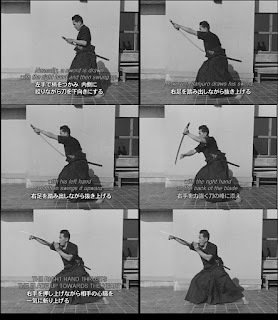REMEMBER THAT THE POSTS HAVE A "READ MORE" BUTTON
ADVERTS
Friday, 13 March 2015
Friday, 29 June 2012
Thursday, 24 February 2011
Friday, 11 February 2011
Monday, 31 January 2011
Friday, 28 January 2011
Monday, 24 January 2011
Bullets
A bullet is a projectile propelled by a firearm, sling, or air gun. Bullets do not normally contain explosives, but damage the intended target by impact and penetration. The word "bullet" is sometimes used to refer to ammunition generally, or to a cartridge, which is a combination of the bullet, case/shell, powder, and primer.
Katana
The katana is Japanese for backsword and often refers to the uchigatana after the Muromachi period, which is a type of Japanese sword, also commonly referred to as a "samurai sword", and generally defined as the standard size moderately curved (as opposed to the older "tachi" style featuring more curvature) Japanese sword with a blade length of greater than 60 cm (23.6 inches).
Sunday, 23 January 2011
Military Hand signals
Hand and arm signals are a great way of communicating when you don't want to be heard. quieter and often more reliable than whispering into a radio mike. The common signals used by military and SWAT teams are shown below.
Rifleman's Assault Weapon
The Rifleman's Assault Weapon (also called RAW) is a close-support rocket-propelled grenade developed around 1977 and put into limited service by the United States Marine Corps in the 1990's.
The Dragunov sniper rifle
The Dragunov sniper rifle is a semi-automatic sniper rifle chambered in 7.62x54mmR and developed in the Soviet Union.
The Mosin-Nagant
The Mosin–Nagant is a bolt-action, internal magazine-fed, military rifle used by the armed forces of the Russian Empire, the Soviet Union and various other nations.
When trials concluded in 1891, the units which tested the rifles were split in their decision. The main disadvantages of Nagant's rifle were the following: more complicated mechanism, long and tiresome procedure of disassembling (which required special instruments—it was necessary to unscrew two screws). Mosin's rifle was mainly criticised for lower quality of manufacture and of materials used which resulted in a slightly larger number of stoppages. The Commission voted 14 to 10 to approve Nagant's rifle. However, the head of the commission, General Chagin, insisted on subsequent trials held under the Commission's supervision during which Mosin's rifle showed its advantages, leading to its selection over the Nagant.
When trials concluded in 1891, the units which tested the rifles were split in their decision. The main disadvantages of Nagant's rifle were the following: more complicated mechanism, long and tiresome procedure of disassembling (which required special instruments—it was necessary to unscrew two screws). Mosin's rifle was mainly criticised for lower quality of manufacture and of materials used which resulted in a slightly larger number of stoppages. The Commission voted 14 to 10 to approve Nagant's rifle. However, the head of the commission, General Chagin, insisted on subsequent trials held under the Commission's supervision during which Mosin's rifle showed its advantages, leading to its selection over the Nagant.
Subscribe to:
Comments (Atom)












































